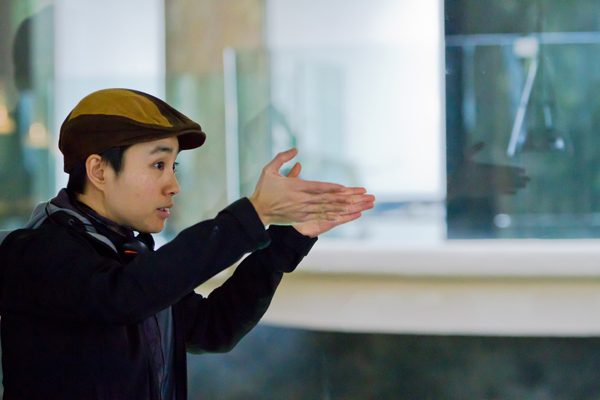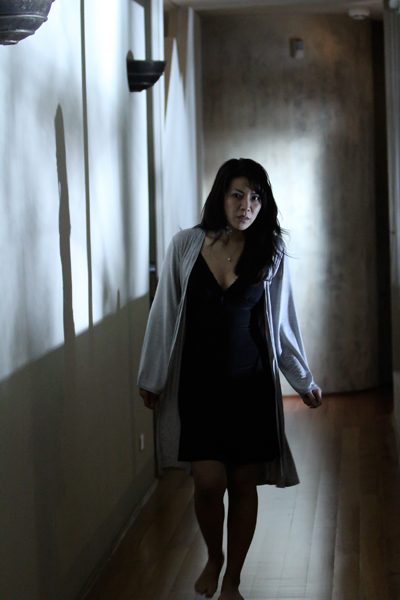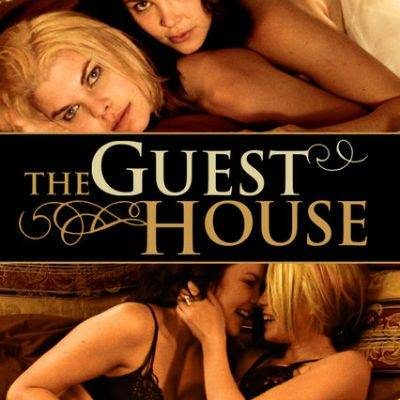
Meet the Canadian-Chinese, lesbian filmmaker behind the mind-bending thriller.
Back in the early ’90s, Desiree Lim was still navigating the corporate world in Japan, fresh out of school with a major in journalism. She began working on news and documentary programs in Tokyo. “Because I’ve always liked writing since I was a kid, the short films that I started making became more narrative.” At that time in Japan, gay and lesbian films were subversive projects, barely casting any light on a near-and-dear genre that has become much more mainstream. “On the side, I led this double life of underground video filmmaking, but I wasn’t out to society or at work,” Lim says of her corporate job by day, and her progression into filmmaking by night. “The Gay and Lesbian Film Festival back then was still in its infancy and wasn’t covered in mainstream media at all.” Then, in 2001 Lim stepped out from the shadows and became the first queer director to create a lesbian feature film in Japan, Sugar Sweet.
And sweet it was. “I was poking fun at the porn industry… And they didn’t mind.” At a critical moment in her life, Lim packed up and moved across the pond to Vancouver B.C. where she began to make several shorts, funded by programs in Canada at the time that wanted to paint better images of minorities. Lim’s first full-length English drama, Floored by Love, played an integral part in Canadian media, addressing the societal pace and how it may not match up with one’s personal life. “It was the first Canadian made-for-TV drama that dealt with same-sex marriage. And this was when the law first passed [in acceptance of gay marriage in Canada], in 2004. And the film said, So what if the law is passed if you aren’t even out to your parents?” Lim points out.

After several years in the Hollywood of the north, Lim began framing together a film she could direct with a little more commercial zing—while keeping in mind her art-house style, she wanted to hone in on a piece of her roots she had yet to explore. “I wanted to do something really contained and yet not inside any boxes at all,” says Lim of her latest 2011 release, The House, a film about a woman who quits her Wall Street job and retreats to a vacant mansion to find peace and solitude. Natalie Skye, who Lim has worked with on four projects—soon to be five, plays Jean, a character who discovers that she isn’t alone in her new digs. Unbelievably, ghosts who have yet to cross over begin to toy with her until she is inescapably face-to-face with them. “Growing up Chinese, I’ve always grown up with ghost stories. I’m not a fan of horror at all, I’m actually quite horrified by it, but ghosts do fascinate me.”
The story is partly based on Wall Street banker turned journalist Nomi Prins, who left her high-profile career after witnessing such devastating events as 9/11. Lim met her while still working in Japan at a network that was hosting interesting people from all over the world. Lim brought Prin on as a guest. “She had become a whistleblower. I wanted a character in The House who had something to say to the world,” a common theme in many of her films.
Lim found an opportunity in The House to explore one’s psyche when left alone to deal, cope and reexamine parts of oneself, in an almost rebirth, and how feelings of loss, love, regret and fear are evoked. In this case, Jean’s discovery of the ghosts welcomes many of her own “ghosts”, confronting her with a new set of realities. But to call The House her first mixed-genre piece is to forget about her 2005 short, Some Real Fangs, a vampire musical dance comedy. “This was way before Twilight,” she laughs. “I find that the stuff I’m writing right now tends to have that edge of wanting to mix genres, but it’s always tricky.”
The House delicately plays on psychological moments when we are all but stunned by what we see and must decide is authentic to us. Lim creeps heartily into the hull of which we are sometimes most afraid of—ourselves. If any of this is beginning to sound a little like the twisted 1980 cult film The Shining, you will find a partial likeness between the two films. Both chase the idea of entrapment and ultimate release while one seeks continuously inward. A vacant hotel shut down for the winter versus a glasshouse, both deepening one’s focus on aloneness.
“The location itself is a character in the film… All the characters are trying to find themselves. The house becomes a house of mirrors and no matter how far or how hard you try to run, you can’t escape yourself,” says Lim. As for how things turn out for Jean (Skye) in the end, you’ll just have to watch for yourself to catch the twist. And believe us, there certainly is one.
On the tails of this Vancouverite’s latest spook-flick release, she’s about to begin working on a romantic drama that got shelved two years ago, its working title Closer to Water, once again featuring Natalie Skye, and Chinese actress Joan Chen. The film follows the budding relationship between a middle-aged woman falling in love with someone much younger than her—her step-daughter. “I’ve always wanted to make a film about older people…and people who find a second chance,” Lim explains how that initiative came to her after taking a closer look at the way particular cultures create tension in young men and women who fear coming out. And truly, Lim is a deliverer of just that theme: getting a chance to just be you.


